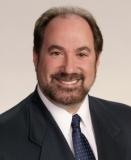The time has unfortunately come in our industry where one event defines a tipping point that has been coming for some time. I speak, of course, of the radio contest incident at KDND-FM, Sacramento in which a listener lost her life after consuming nearly two gallons of water competing to win a computer game.
Enough has been written about what happened and debate has been swirling as to what the lawsuit and any potential FCC action may bring. With this unfortunate situation comes clarification of what's wrong with the radio industry.
Fingers have pointed at consolidation as one of the principal reasons the radio industry is in its current state. Much has been said about how combining radio assets in a given market in order to save money has eliminated many hard-working, creative and effective people from management to on-air personalities, traffic directors and support staff. From my perspective having spoken with managers on a daily basis since consolidation (1996), there has been this undercurrent of concern expressed to me about deteriorating effective performance by station managers.
Where once one manager oversaw one station's operations (General Manager), one Program Director creatively built one station's programming, one Sales Manager oversaw one sales department, the late 90's saw a proliferation of multiple stations or staffs falling under one manager. It has been expressed to me on numerous occasions as far back as 1999 that this type of structure was a defensive approach to management, i.e. too much was going on within the radio stations for management to effectively keep their finger on the pulse, to effectively plan ahead and lay the groundwork for smooth operations and excellent communication.
In order to accommodate this demand for one's time, managers delegated responsibilities. After all, there were only 18 hours in a workday and not enough time to pay attention to the minutiae that often makes these businesses work.
This is at the heart of what happened in Sacramento. General Managers used to participate in weekly promotion meetings, if only to be aware of what the station was up to and to provide guidance in the event there were any questions about legal or ethical issues related to promotions or contests. With consolidation these promotion meeting appearances by GM's began to disappear. If the GM was interested enough, he/she would have notes about the meeting submitted to him afterwards and if the station was fortunate, he would actually read them.
I know programmers, sales managers and general managers today who submit weekly or monthly reports to their bosses and believe their reports are never read. There just isn't time.
And in Sacramento, the lack of General Management involvement with the promotion department has exposed how one person can only do so much. Entercom owns six Sacramento stations. Entercom Sacramento GM David Lichtman likely was not involved enough to be aware of KDND's "Wee for a Wii" promotion. In all likelihood his non-involvement was rooted in his time management. From what I know, Mr. Lichtman is a good man and has been a good executive for Entercom. He just couldn't be everywhere he needed to be.
And while they may not be as significant on the surface as his missed opportunity to stop this promotion before it started, it is quite possible that Lichtman's involvement with 6 stations caused other important decisions, strategies or personnel issues to fall through the cracks.
This single event has brought to the forefront a significant symptom of what's wrong with the radio business whose managers used to be proactive, where general managers would see the future and plan for it - not only react to the here and now. Where sales managers would spend time with their staff and train to excel. Where program directors would have time to consider ways to improve programming and stay ahead of their listeners.
The implications of consolidation become more clear each day, but nothing crystallizes how consolidation has contributed to distraction of management more than what happened at KDND-FM, "The End", in Sacramento.
The industry can learn from this event. But will it?
Subscribe to:
Post Comments (Atom)

No comments:
Post a Comment